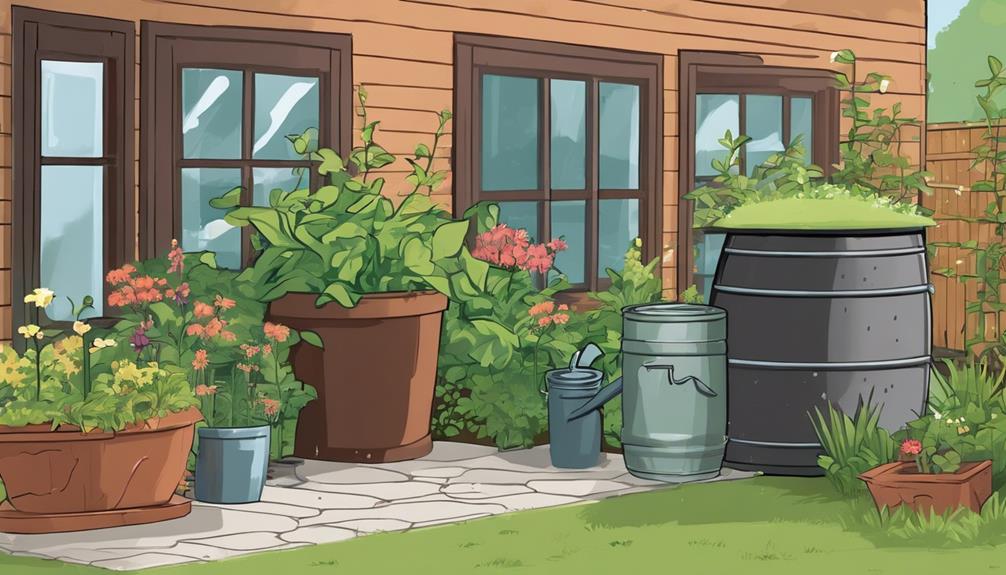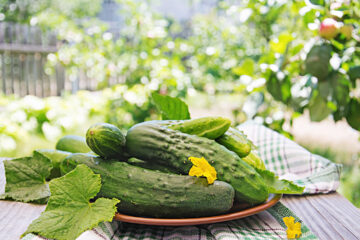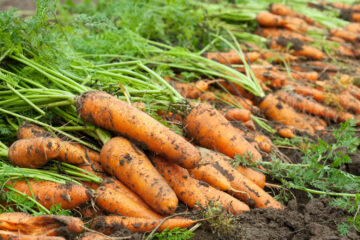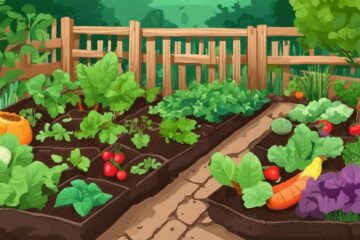Are you aware of the simple yet effective methods that can help you conserve water in your garden effortlessly? By incorporating water-saving techniques, you not only contribute to environmental sustainability but also benefit your garden in multiple ways.
From reducing water waste to creating a more resilient landscape, these practices offer a win-win solution. Explore how these strategies can transform your gardening experience and make a positive impact on the environment.
Benefits of Water-Saving Garden Techniques
By implementing water-saving garden techniques, you can significantly reduce water usage and promote healthier plants. Utilizing drip irrigation systems ensures efficient water delivery directly to plant roots, minimizing evaporation and runoff.
Mulching your garden helps retain moisture in the soil, reducing the need for frequent watering and promoting plant growth. Incorporating organic matter into the soil enhances soil drainage, allowing plants to access water more effectively.
Creating a water-wise landscape not only conserves water but also creates a sustainable ecosystem for your plants to thrive. These methods not only save water but also contribute to the overall health and vitality of your garden, making it a more environmentally friendly and sustainable space.
Essential Watering Tips for Organic Gardens
For optimal growth and health of your organic garden, implementing essential watering tips is crucial. Deep, thorough watering once a week promotes healthy root growth, while consistent observation of plant needs helps determine the ideal watering schedule. Be cautious of overwatering, as it can lead to root rot and nutrient leaching. Watering early in the morning is best to reduce evaporation and ensure optimal water absorption. Mulching around plants helps retain soil moisture and reduces the frequency of watering. Consider these tips to maintain a strong root system and meet your organic garden's water requirements effectively.
| Watering Tip | Description | Importance |
|---|---|---|
| Deep Watering | Promotes healthy root growth | Essential |
| Observing Plant Needs | Determines ideal watering schedule | Crucial |
| Avoid Overwatering | Prevents root rot and nutrient leaching | Important |
| Watering in the Morning | Reduces evaporation and aids water absorption | Key |
| Mulching | Retains soil moisture and reduces watering needs | Beneficial |
Maximizing Water Efficiency in Vegetable Gardens
To maximize water efficiency in your vegetable garden, incorporate drip irrigation to reduce water usage significantly. Drip irrigation delivers water directly to the root system, minimizing evaporation and runoff.
Additionally, consider mulching around your vegetable plants to retain soil moisture, decreasing the frequency of watering. Utilizing rain barrels to collect and store rainwater can supplement your irrigation needs, conserving water in the process.
Planting drought-tolerant vegetables in your garden is another effective way to save water while still ensuring a plentiful harvest. For more precise watering practices, install a soil moisture sensor in your vegetable garden to water your plants only when necessary, further optimizing water usage.
Innovative Irrigation Methods for Garden Sustainability
To enhance the sustainability of your garden, explore innovative irrigation methods that promote efficient water usage and support the health of your plants. Implementing a drip irrigation system can significantly reduce water wastage, saving up to 90% more water than traditional sprinklers. Smart water controllers adjust watering schedules based on weather conditions, cutting water usage by up to 40%. Rainwater harvesting through rain barrels can collect and store significant amounts of water, reducing reliance on traditional sources. Utilizing soaker hoses and bubbler attachments for efficient watering techniques ensures water is delivered directly to plant roots, aiding in root development and minimizing evaporation and runoff. Embrace these water-saving methods to promote organic gardening practices and contribute to water conservation efforts.
| Innovative Irrigation Methods | Benefits |
|---|---|
| Drip Irrigation System | Saves up to 90% more water |
| Smart Water Controllers | Reduces water usage by 40% |
| Rainwater Harvesting | Collects and stores rainwater |
| Efficient Watering Techniques | Delivers water to plant roots |
| Soaker Hoses | Minimizes evaporation |
Overcoming Common Watering Challenges in Gardens
Overcoming common watering challenges in gardens requires a nuanced understanding of plant needs and careful monitoring of moisture levels. To tackle these issues effectively, consider the following:
- Deep Watering: Encourage root systems to grow deeper by watering thoroughly but less frequently.
- Drip Irrigation: Implement water-saving techniques like drip irrigation to deliver water directly to the roots.
- Plant Selection: Choose drought-resistant plants that require less water to thrive in your garden.
- Monitoring Soil Moisture: Keep a close eye on soil moisture levels to adjust watering frequency accordingly.
Frequently Asked Questions
What Are Some Ways to Save Water in Your Garden?
You can save water in your garden by using drip irrigation systems, mulching around plants, collecting rainwater in barrels, watering at the base of plants, and planting drought-tolerant species. These methods help conserve water and promote a healthy garden.
How Does a Garden Help With Water Conservation?
Your garden is a water-saving superhero, absorbing rain, promoting healthy soil, and reducing runoff. It conserves water by using drought-tolerant plants, acting as a natural filter, and retaining moisture with mulch. Embrace its powers!
What Is the Most Sustainable Way to Water Your Garden?
When watering your garden, consider drip irrigation for efficiency, mulching to retain moisture, timers for control, and rainwater harvesting. These methods conserve water and promote sustainability. Don't overlook night watering and dense planting to reduce water usage further.
How Can I Use Less Water in My Garden?
To use less water in your garden, implement drip irrigation, opt for drought-tolerant plants, mulch garden beds, set up rainwater harvesting, and use smart controllers. These methods can reduce water usage, conserve resources, and promote a sustainable garden.
Conclusion
So, why aren't you using these water-saving garden methods?
By incorporating these techniques, you can make your garden as efficient as a well-oiled machine.
Don't let water go to waste – embrace sustainable landscaping practices and watch your garden thrive while conserving precious resources.
It's time to take action and make a positive impact on the environment.





